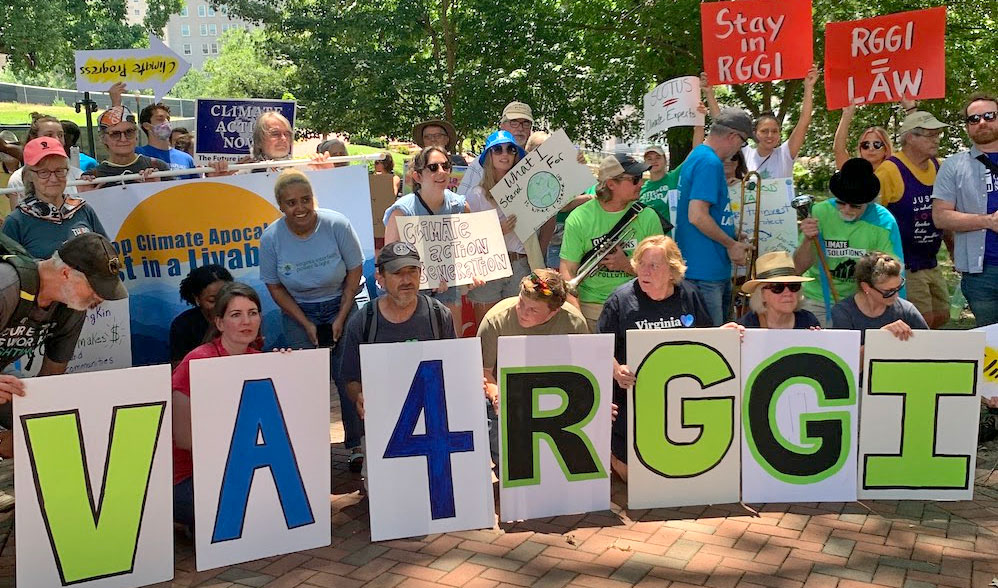Cleaning Up Coal Ash
For well over a century, power plants across the country have burned coal to generate electricity. And for just as long, leftover coal ash has been dumped in open, unlined pits near the power plant, usually located on a river or lake. Every year, U.S. power plants produce 130 million tons of coal ash, which is the second largest waste stream in the country after municipal garbage.
Coal ash concentrates the toxic heavy metals found in coal, including arsenic, mercury, lead and selenium. Stored in unlined, wet impoundments, coal ash has been leaking these toxics into our groundwater and surface waters for years. Sometimes these impoundments collapse — with disastrous results.
Yet government regulations for coal ash management are either non-existent or sparse, and there is little enforcement of the regulations that do exist. In North Carolina, this lack of oversight — and the complicity between state regulators, elected officials and Duke Energy — came to a boiling point in February 2014 when one of Duke’s coal ash impoundments spilled 39 million tons of ash into the Dan River.
Citizens living near North Carolina’s 33 coal ash impoundments — all of which have leaked — have fought for transparency from Duke and the state, and for cleanup of the pollution that threatens their property value, health and family. Their actions forced this issue into the headlines of news networks and to the forefront of environmental justice conversations in the United States.
Appalachian Voices stood with these communities as we worked for years to compel Duke Energy and the N.C. Department of Environmental Quality to excavate coal ash from all the North Carolina sites and dispose of it either in lined, dry landfills, away from waterways, or by recycling it for concrete or other uses, provided it’s done in a manner that protects public health and the environment.
On Jan. 2, 2020, North Carolina announced a historic settlement with one of the state’s most powerful corporations and polluters, Duke Energy. The settlement requires Duke to move nearly 80 million tons of toxic coal ash at six of its power plants to properly lined landfills onsite or recycle it.

Learn information about specific coal ash impoundments in the South, including health threats and safety ratings:
Additional Resources
Fact sheets, videos, links to academic research, and more
Sign Up to Act
Help us protect the health of our communities and waterways.
Latest News
News Briefs from Across Appalachia
From a win for rural West Virginia residents fighting a corporate polluter to expanding outdoor recreation, here are a few happenings from across Appalachia.
Pisgah-Nantahala National Forest Plan Finalized
Conservation groups raise concerns for the future of Western North Carolina national forests following the announcement of an updated forest management plan.
Upcoming public hearings should highlight weaknesses of new silica rule proposal
The U.S. Mine Safety and Health Administration is planning three hybrid hearings on its proposed rule to strengthen silica exposure standards for coal miners. These hearings will give miners and their advocates an opportunity to point out some of the weaknesses of the proposal.
Environmental groups file notice of appeal as fight to keep Virginia in the Regional Greenhouse Gas Initiative continues
Two months after Virginia’s Air Pollution Control Board voted to remove the state from the Regional Greenhouse Gas Initiative, environmental groups are working to stop this from happening.
Remembering David Hairston
It is with great sorrow that we reflect on the life of David Hairston, a profoundly inspirational community leader, a deeply respected member of the Appalachian Voices Board of Directors, and a treasured friend to many.
Statement from Rural Power Coalition regarding pending FY 2024 agricultural and rural development appropriations bill.
H.R.4368 makes significant cuts to critical investments in rural energy that could delay improvements to rural energy infrastructure by decades, leaving rural communities vulnerable to energy insecurity, continued fossil fuel pollution and volatile electricity costs.











